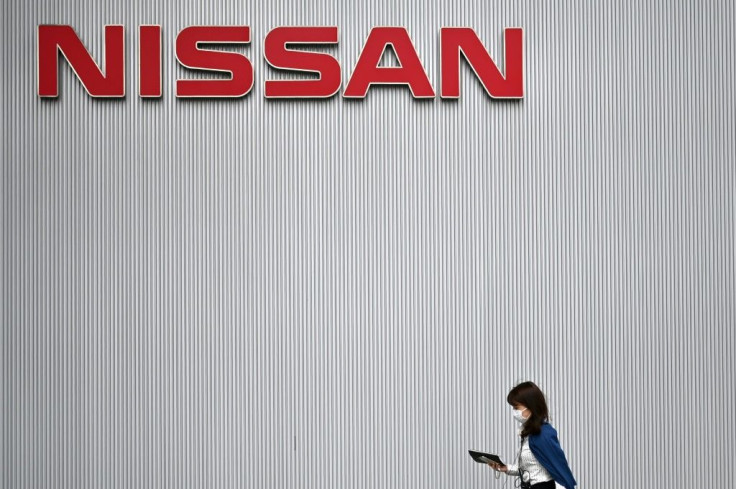Nissan Posts Staggering Loss For Fiscal 2020, Plans More Plant Closures

KEY POINTS
- Thw loss figure included $5.6 billion in restructuring costs and impairment losses
- Nissan sold 4.79 million vehicles in the latest fiscal year, a 13% decline from last year
- The Spanish plant in Barcelona employs some 3,000 workers
Japanese automaker Nissan Motor posted a net loss of $6.2 billion for the fiscal year ended in March, its worst performance in two decades as it dealt with both the covid-19 pandemic and an ongoing costly restructuring.
That huge loss figure included $5.6 billion in restructuring costs and impairment losses.
The company posted a net profit of $2.96 billion in the prior fiscal year.
The automaker sold 4.79 million vehicles in the latest fiscal year, a 13% decline from last year. Nissan's annual revenues also dropped 14.6% from the previous year.
"We have been modifying the expansion strategy for nearly two years, but it is absolutely difficult to make a profit in these circumstances," said CEO Makoto Uchida. "We acknowledge the failure to get out of this situation and deal with the excess assets."
Uchida also said Nissan was embarking upon a four-year program to reduce production capacity by 20% to 5.4 million units per year.
The company will also slash its product line-up from 69 to less than 55 models while cutting fixed costs by about $2.79 billion.
Nissan, which is partners with Renault and Mitsubishi Motors, also said it seeks to close plants in Spain and Indonesia.
The Spanish plant in Barcelona employs some 3,000 workers.
The Spanish government criticized Nissan, citing it would be cheaper for the company to invest in improving its productivity in Catalonia rather than incur the 1 billion-euro ($1.1 billion) charge related to the closure.
“We lament this news,” said Spanish Economy Minister Nadia Calvino. “We think this is a plant that has a strategic value for Nissan.”
Steve Bush, national officer for automotive at Britain’s Unite union, said: “The loss of the jobs of our Spanish colleagues is a regrettable reminder that automotive manufacturing is facing tremendous challenges.”
However, Nissan will apparently keep its U.K. factory in Sunderland which employs about 7,000 people.
Nissan also said it wanted to increase its plant utilization rate above 80%, thereby making operations more profitable.
Nissan further noted it will focus on its core markets and products, pull out of South Korea and close its Datsun business in Russia.
Uchida added that the company wants to sell more than 1 million electric vehicles by the end of fiscal 2023.
In North America, Nissan will consolidate its production around core models.
"We feel it has been challenging to restore the damaged brand. We move on with a step further on rationalization," Uchida said of the struggling North American business. "We will surely bring Nissan back to a growth model. Nissan's potential is not at this level.”
Declining to offer earnings guidance for next year due to uncertainties surrounding the pandemic, Nissan assured it has "sufficient liquidity to steer through this challenging business environment."
Analysts forecast a net loss of $1.67 billion for the current fiscal year.
“Nissan is facing an extremely tough business environment,” said Satoru Takada, auto analyst at TIW, a Tokyo-based research and consulting firm. “The coronavirus shock hit Nissan when it was already struggling to recover. Nissan has already cut jobs, but extra restructuring may be needed. Nissan cannot expect a V-shaped recovery. It is at a crucial stage.”
Nissan has been engulfed in turmoil and confusion for years – not least by former CEO Carlos Ghosn who instituted an aggressive expansion strategy before his arrest for fraud in November 2018. (Ghosn escaped prison in December 2019 and fled to Lebanon).
Uchida took over as Nissan CEO after former CEO Hiroto Saikawa was forced out.
Nissan has also struggled to cope with its complex alliance with Renault. Renault of France owns about 43.4% of Nissan, while the Japanese company owns 15% in its French partner, but without any voting rights.
A proposed full merger between the two automakers was scrapped.
"There is still a fight for power between Nissan and Renault, and there is also some discord within Nissan," said Takaki Nakanishi, CEO of Nakanishi Research Institute, a Tokyo-based auto industry research company. "It is unclear if people in Nissan are united in pursuit of the same goal for the alliance and for Nissan's mid-term plan."
© Copyright IBTimes 2025. All rights reserved.





















